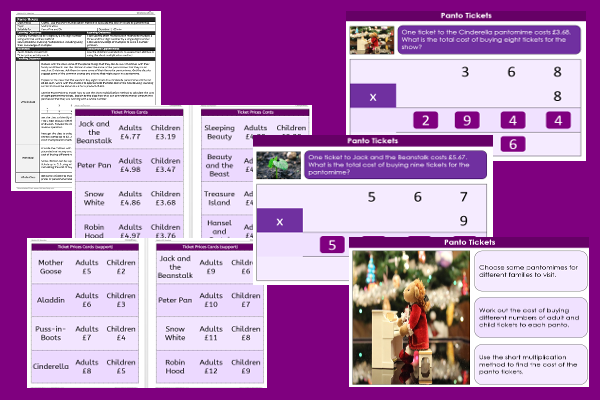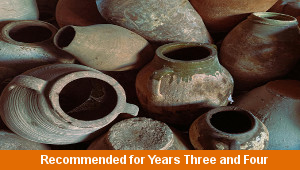Home > Key Stage Two > Maths > Number > Morey > Christmas Shopping
Lesson Four – Panto Tickets

This maths teaching pack for Key Stage Two gets the children to model how to use the short multiplication method to calculate the cost of buying tickets to different Christmas pantomimes for families.
The class can explain and illustrate how to use calculations in the times tables to support multiplication of larger numbers when completing each calculation.
Download this teaching pack including a lesson plan, classroom activities and an interactive presentation to model how to use the short multiplication method to calculate the cost of buying tickets to different Christmas pantomimes for families
Activities in this teaching pack include a set of differentiated cards to practise multiplying money amounts by single digit numbers to calculate the cost of buying tickets to different Christmas pantomimes for families with different numbers of adults and children.
The interactive presentation gets the children to explore how to use the short multiplication method to calculate the cost of buying tickets to different Christmas pantomimes.
This lesson is part of a maths scheme of work to get the children to practise using formal written methods for addition and multiplication to calculate the cost of buying different items to celebrate a family Christmas. There are teaching activities for shared learning, differentiated worksheets to support independent learning and interactive presentations to introduce concepts and key skills.
-

Lengths, Masses and Capacities
Solve a selection of contextual problems by comparing and converting between different units of measurement for mass, length and capacity
-

Ancient History Finds
Explore and illustrate how to use apostrophes for possession to indicate some of the special artefacts that were owned and used in past civilizations
-

Wind Turbine
Plan and write a magazine article about an environmental issue listing arguments in favour of or against the installation of a wind turbine
-

Radio Commercials
Practise using persuasive language to write newspaper adverts and radio commercials to sell houses in the school’s neighbourhood
